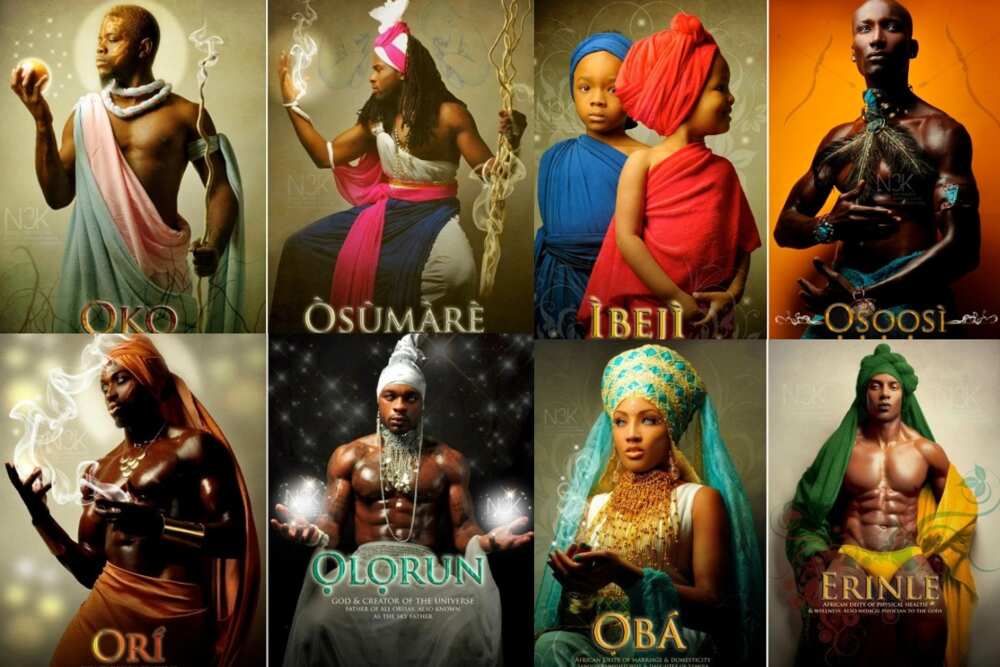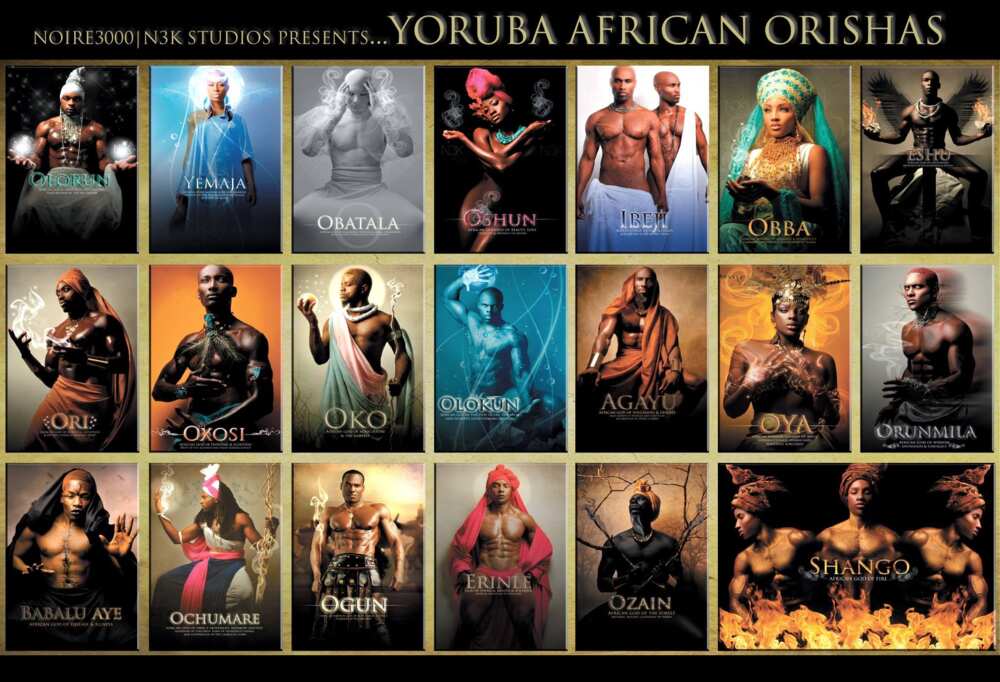Could the ancient beliefs of the Yoruba people, with their intricate pantheon of deities and profound spiritual concepts, offer a window into understanding the very essence of life itself? For centuries, the Yoruba people of West Africa have cultivated a rich and complex spiritual tradition, a vibrant cosmology that continues to resonate deeply within their communities, a system that emphasizes a powerful life force, known as "Ashe", that permeates all aspects of existence.
The Yoruba religion, originating from the region now encompassing parts of Nigeria, Benin, and Togo, is far more than just a collection of myths and rituals. It is a deeply ingrained way of life, a spiritual framework that informs everything from social structures and artistic expression to everyday interactions. Rooted in oral tradition, knowledge and practices have been passed down through generations, creating a vibrant and living system. The faith is characterized by a rich corpus of myths and hundreds of deities, or orishas, with religious knowledge traditionally passed down through oral tradition. Much like the catholic saints, the yoruba orishas work as the intermediaries between man and the supreme creator, and the rest of the divine world. The Yoruba creation story has different versions. Each confirms the yoruba religion has many orishas but offer different explanations regarding how they came to exist.
| Aspect | Details |
|---|---|
| Origin | West Africa, primarily in present-day Nigeria, Benin, and Togo (Yorubaland) |
| Core Belief | Recognition of a supreme being (Olodumare/Olorun) and a pantheon of deities (Orishas) |
| Key Concept | Ashe: The life force present in all things |
| Practices | Rituals, divination (Ifa), offerings, festivals |
| Sacred Texts | Oral tradition, including Ifa literary corpus |
| Central Figures | Olodumare/Olorun (Supreme Being), Orishas (deities) |
| Primary Focus | Harmony with the divine, understanding the world, community |
| Influence | Spiritual practices in the African diaspora (e.g., Candombl, Santera) |
| Notable Features | Divination, ancestor veneration, emphasis on community and interconnectedness |
| Reference Website | Encyclopedia Britannica - Yoruba Religion |
At the heart of this belief system lies the concept of "Ashe," a powerful life force that permeates all things, both human and divine. This is the energy found in all natural things. This energy, according to Nigerian professor Jacob K. Olupona, is the empowered word that must come to pass, the key to understanding the Yoruba worldview. It's the creative spark, the essence of existence itself. It's a spiritual currency that flows through everything, connecting all beings and objects, and shaping the world around them.
Central to the Yoruba faith are the Orishas, the deities that populate the Yoruba pantheon. However, the term "Orisha" is not easily defined. They are not merely deities; Instead, an orisha is a complex multidimensional unity linking people, objects, and powers. Often compared to saints in the Catholic tradition, the Orishas act as intermediaries between humanity and Olodumare, the supreme creator. With up to 6,000 deities in the Yoruba pantheon, they represent various aspects of the universe and human experience. Their roles are diverse, each with their own domains, personalities, and stories. From the primordial deities who predated the creation of the world, to the natural deities who govern forces like the weather, to the deified ancestors, the Orishas provide a rich tapestry of spiritual guidance and support. Each Orisha embodies a specific aspect of life, from fertility and love to iron and war, influencing every facet of the human experience.
Olodumare (also known as Olorun), the supreme deity, is the ruler of the heavens and the creator of the Yoruba people. Olodumare is considered the creator of the universe and everything in it. According to kola abimbola, the yorubas have evolved a robust cosmology. Oduduwa joined with the humans and begat a new bloodline of kings (the yoruba called him ooni of ife, the progenitor of the yoruba people). As the people began to reproduce, new lands were required for them to settle. Olorun sent them ogun, god of crafts, to find a suitable habitat. He is also known as Eldmar and is the source of all "Ashe." He chose Obatala to create the earth and human beings. Below Olodumare are the irunmole, divine messengers that carry out tasks to maintain law and order. The twelve goddesses described here are known as the orisha (divine spirits) who are protective deities, often teaching their followers the secrets of the natural world.
One of the most distinctive features of Yoruba mythology is its pantheon of deities, known as orishas. These gods and goddesses play pivotal roles in the cosmos, each governing specific aspects of nature and humanity. The Yoruba gods are divided into three categories: Primordial deities, natural deities, and deified ancestors. In the yoruba religion, the orisha are revered as powerful deities, each embodying different aspects of the universe and human experience. These gods and goddesses are central to yoruba mythology and spirituality, deeply woven into the fabric of their cultural heritage.
Some of the most popular deities include Olorun, the supreme creator responsible for all in the world, and Obatal, the god of fertility. Other popular gods and goddesses include Ogun, the god of iron and war, and Oshun, the goddess of love and beauty. Oshun is the goddess of love and beauty, while Shango reigns as the god of thunder. At the beginning of yoruba mythology, the universe was composed of two elements, the ethereal sky above and a watery chaos below. Two gods rule over both these primordial realms. Olokun presides over this watery abyss, an aquatic realm populated by sea spirits.
Orunmilaalso known as Orunla or Ifais the Yoruba god of wisdom, knowledge, divination, and fate. He is the first son of the sky god Olorun and serves as a messenger of the gods. He is also considered to be the first babalawo (oracle or diviner) of the yoruba religion. He is one of the oldest and most important of the orishasthe gods of the yoruba pantheon. Through him, the Yoruba people gain insights into their destinies and the forces that shape their lives. The Ifa literary corpus, a complex system of verses and stories, is central to the practice of divination and offers profound guidance on how to navigate life's challenges.
The Yoruba people of Nigeria have a rich spiritual tradition that includes a variety of deities or gods. These gods are known by different names and are revered for their specific powers and qualities. The Yoruba religion is a blend of indigenous beliefs, myths and legends, proverbs, and songs, all influenced by the cultural and social contexts of the western portion of africa.
The Iroko tree holds great significance in Yoruba culture in africa. With its dense hardwood and durability, it is widely used in construction and carpentry. However, the iroko tree is... Babalu Aye, the African god of healing and disease, holds great significance in Yoruba religion.


